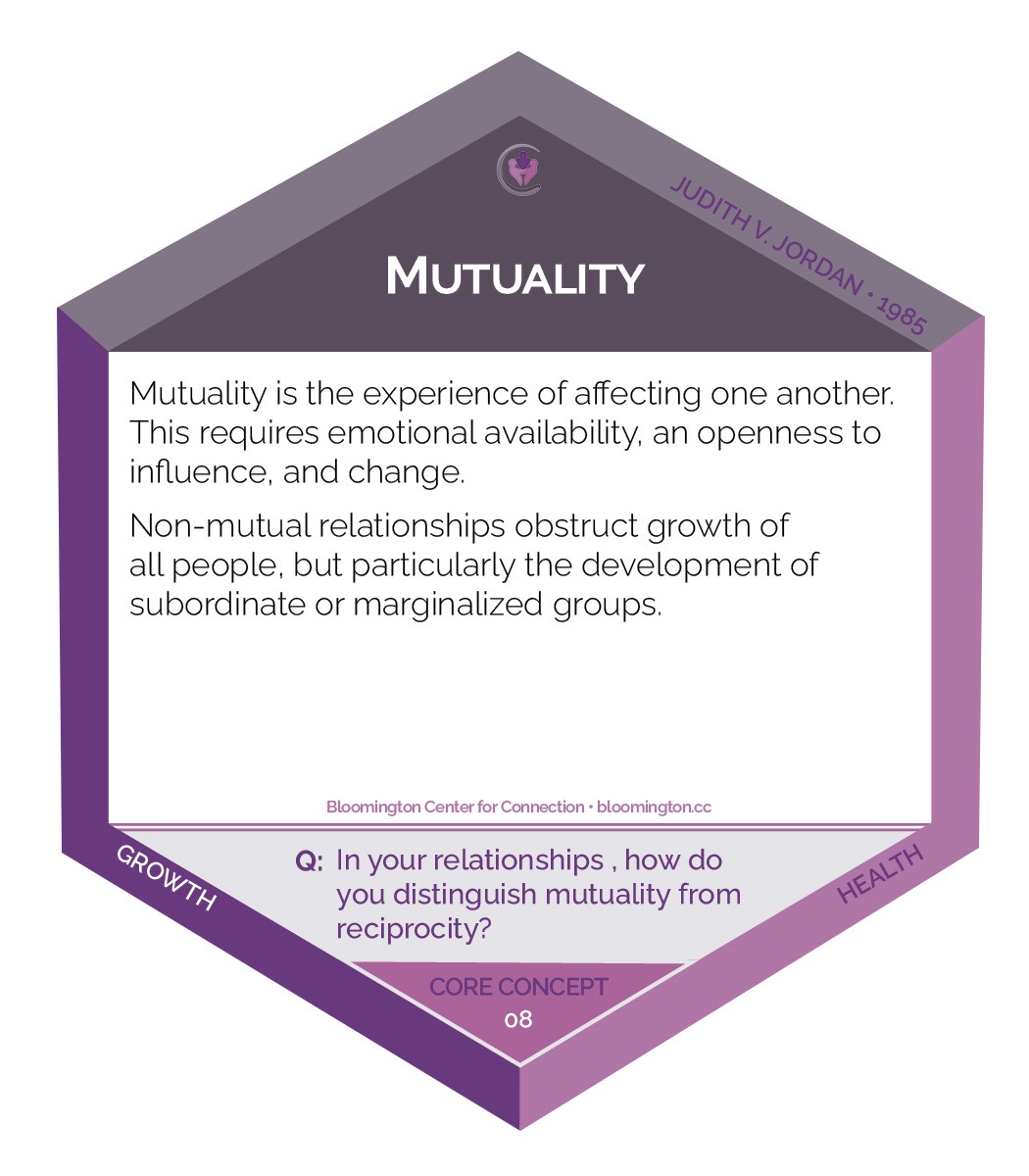My grandmother was full of useful gems including things like, “Don’t borrow trouble from tomorrow, you’ve got plenty today.” Another one she loved was, “In marriage, only one person gets to fall apart at a time.”
If one person remains grounded while the other person is falling apart, the grounded person can provide safety and healing. “It works better if you take turns,” she reassured me. So reasonable, so reciprocal.
Reciprocity implies transaction. I remember Doc Petry teaching us a formula for reciprocity by doing a thing with fractions, followed by flipping them or adding or multiplying, or something resulting in a right answer. It was kind of fun– a puzzle with a right answer. Relationships are inexact and messy. There aren’t exact formulas or answers, no matter how much I want to lean on my grandma’s wisdom.
Relational Cultural Theory emphasizes mutuality, sometimes confused with reciprocity. Taking turns having meltdowns is reciprocity. You have your breakdown, I give you a ride back to safety. I have my breakdown, you pick me up, wrap me in a blanket. Reciprocity requires that half of the relational equation have the resources to pick up pieces. Required reciprocity (as in, here are the rules of a relationship) has the potential to force someone to pretend they are okay when they are not.
Most of us are struggling right now. We are struggling with fatigue, anxiety, overwhelm, burnout, isolation and difficulty adjusting to the reality of uncertainty. Reciprocity isn’t always an option. We are all falling apart at the same time. The stressors keep coming from all directions—war, rage, inequity, climate catastrophe, lagging skills from two years of scrambling to survive, the politicalization of public health, and so much grief.
What does mutuality have to offer? What if, when your loved one voices pain, you lean in together, acknowledging how hard it is right now? What if we release the compulsion to make it better? What if, when kids, friends, partners, or colleagues melt down, we sit with them and share that we are also struggling, that we don’t know what happens next, but we know we’ll do our best to be together, helping each other, as we travel?
It’s tempting to look at the last two years as time off. We didn’t get anything done! Now that the masks are coming off, we need to jump in, fix all the stuff we let slide while we were slacking our way through 2020 and 2021. Catch up the kids on math. Get back to work. DO ALL THE THINGS! Not only resume our normal programming, but ramp it up to where it would be, had we not been interrupted.
It was not time off. It was a two-year, gut-wrenching, soul-testing odyssey. We are tired. We need healing. It’s likely we’ve lost people, dreams, cherished ways of being. We weren’t held in our grief because we were all too busy surviving.
It’s impossible to rush wellness. Slow down. Lean into each other. Allow ourselves to mourn together, to mutually hold each other. Trust that allowing mutuality leads to healing. We are in collective pain, and the antidote is messy and authentic mutuality.

